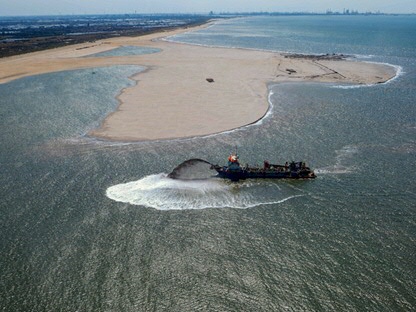Future developments

The prehistoric finds from Doggerland are primarily known because of the intense modern exploitation of the North Sea. Archaeological and palaeontological materials are caught in fishing nets, or being brought ashore as an admixture of economic aggregates such as gravel and shells. The replenishment of beaches with North Sea sand also is an important source. But next to these activities, many more have an effect on the preservation of underwater sites and palaeolandscape remains. It is therefore important to have strategies which permit to appropriately deal with this heritage.
Based on experience acquired over the past 15 years, the project aims to develop best practices in close cooperation with stakeholders. Partly these involve the establishment of a protocol that aims at a better contextualisation of finds collected on beaches. In addition, written schemes of investigation will be developed to be applied in the context of future offshore developments on the North Sea, such as large scale sand extraction and the construction of wind energy parcs. Particular attention will be paid to the way research can effectively be integrated in such developments, and just how new data can be used and synthesised to maximize scientific gain.
| Last modified: | 31 May 2021 11.16 a.m. |
